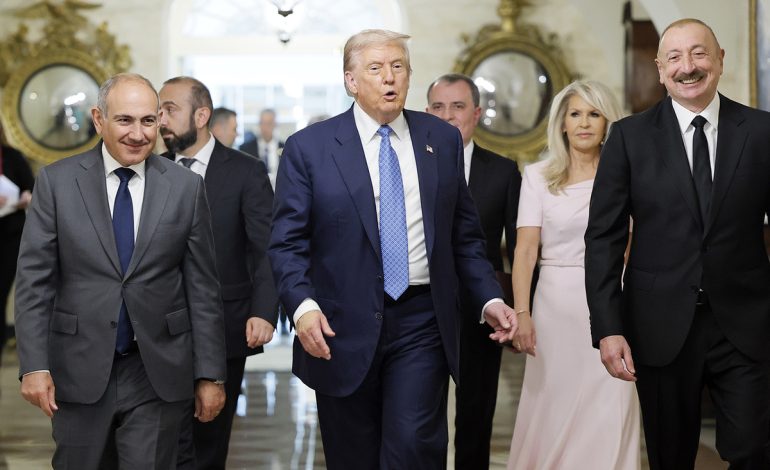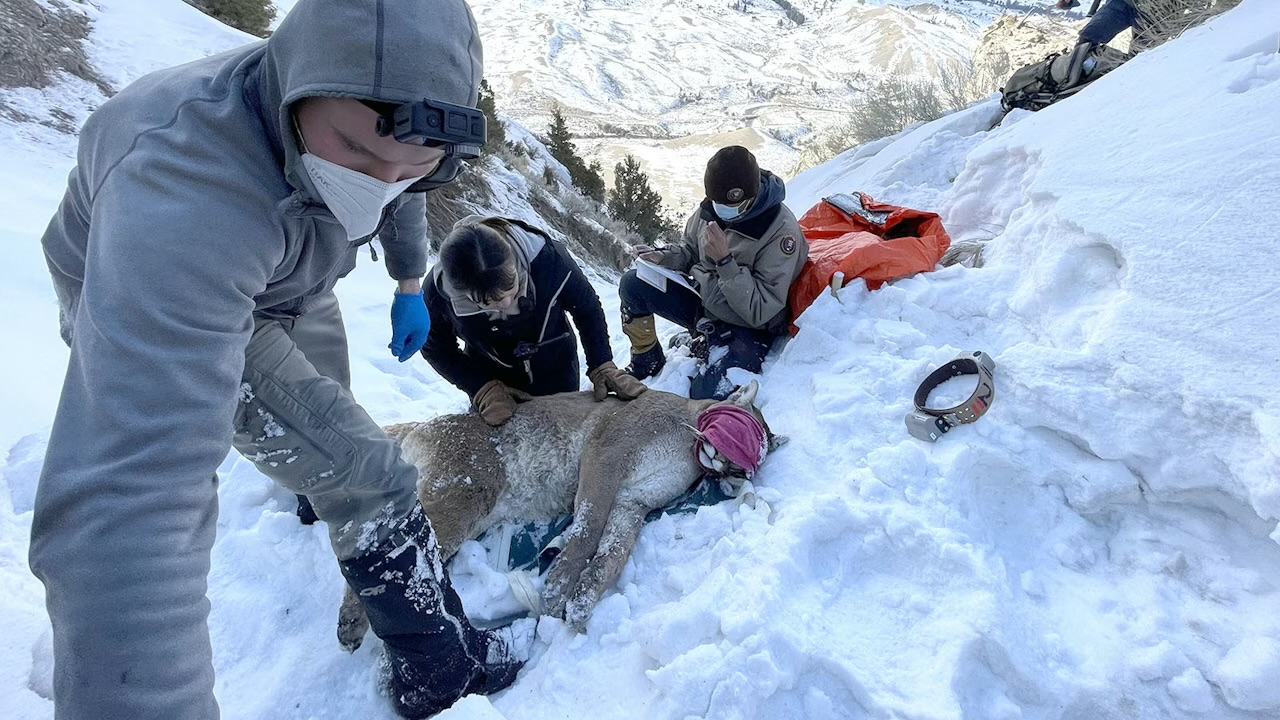ANALYSIS: Why the Armenia-Azerbaijan Deal Might Collapse Before It Even Begins

On paper, the peace memorandum signed at the White House this August looks like a breakthrough. Armenia and Azerbaijan agreed to normalize ties, open up trade routes, and — most importantly — establish a new passage through Armenian territory linking Azerbaijan proper to its Nakhchivan exclave. Washington quickly branded it the Trump Corridor for International Peace and Prosperity, while pundits heralded it as the most hopeful sign for the South Caucasus in decades.
But scratch beneath the surface, and it’s hard to shake the feeling that this “peace deal” could die in the cradle.
For Yerevan, the stakes are existential. Armenia has been bruised by back-to-back crises: Russia’s indifference during the 2020 war, Azerbaijan’s lightning takeover of Nagorno-Karabakh in 2023, and trade chokeholds from both Georgia and Iran. The result has been a dramatic pivot westward. Prime Minister Nikol Pashinyan has hitched Armenia’s survival to US and European backing, banking on promises of investment and security guarantees.
But Pashinyan’s domestic position is shaky. His government faces fierce opposition from nationalist parties, the influential Armenian Apostolic Church, and diaspora activists who see the corridor as a humiliating concession to Baku. Constitutional changes — demanded by Azerbaijan to scrub references to Karabakh from Armenia’s founding documents — will require a referendum. With public trust low and opposition forces eager to boycott, the process could collapse before it begins.
If Pashinyan pushes ahead, he risks deepening polarization and eroding what remains of Armenia’s democratic institutions. If he hesitates, Aliyev can cry foul and threaten renewed aggression. Either way, the peace hangs by a thread.
The imbalance of the deal doesn’t help. Azerbaijan walks away with a guaranteed corridor, US recognition of its territorial integrity, and the prospect of Section 907 sanctions being lifted. Armenia? No open borders with Turkey, no big-ticket Western investments, and no binding security guarantees.
This asymmetry feeds the narrative in Yerevan that Pashinyan is selling out Armenian sovereignty. Opposition lawmakers have already branded the agreement a “paper peace,” while human rights advocates warn that it ignores key issues: Armenian POWs, displaced families from Artsakh, and the destruction of cultural heritage.
Even more troubling, critics argue, is that the corridor could double as a military route for Baku, tipping the balance further against Armenia. Without real economic dividends or safeguards, Yerevan risks trading land for promises.
Of course, the South Caucasus is never just about Armenia and Azerbaijan. Moscow is backing pro-Russian figures to challenge Pashinyan in 2026. Iran, wary of a US-controlled corridor along its northern border, has little incentive to make things easy for Armenia. And Turkey, Azerbaijan’s staunch ally, is poised to gain more clout in NATO if the corridor succeeds — a development that could rattle Brussels as much as it reassures Washington.
For the US, the corridor is part of a bigger bet: building out the Middle Corridor trade route to Europe while squeezing Russian and Iranian influence. But here, too, the risks are high. If Armenia unravels politically or fails to ratify the deal, the US could be left holding the bag, its credibility damaged and its rivals emboldened.
The Lemkin Institute for Genocide Prevention has gone so far as to warn that the memorandum could pave the way for “a peace of the graveyard.” Their argument: any deal that ignores Azerbaijan’s record of atrocities, the erasure of Artsakh Armenians, and ongoing anti-Armenian rhetoric only legitimizes Baku’s expansionist goals. By forcing Armenia to drop its cases at international courts, critics say, the agreement undermines the only legal mechanisms left to pursue justice.
Meanwhile, Azerbaijan continues to float its “Western Azerbaijan” program, registering thousands of people for potential resettlement in Armenia—an ominous signal that Baku’s ambitions extend beyond corridors and trade routes.
If everything holds—if Pashinyan survives the political gauntlet, if Azerbaijan doesn’t move the goalposts again, if Washington stays committed—the corridor could be transformative. Armenia could finally diversify its trade routes, Western investment might flow in.
But if the fragile political balance tips the other way, the corridor could become a poisoned chalice: a tool for Azerbaijan to project power deeper into Armenian territory, a wedge for Russia and Iran to exploit, and a political trap for Pashinyan ahead of the 2026 elections.
The peace deal between Armenia and Azerbaijan is being sold as history in the making. In reality, it’s history on probation. For it to work, the US and Europe will need to do more than clap from the sidelines—they’ll have to invest in Armenia’s sovereignty, offer tangible economic carrots, and confront the uncomfortable reality of Azerbaijan’s authoritarian playbook.
Otherwise, the Trump Corridor may never become more than a line on a map, remembered less as a bridge to peace than as a missed opportunity that collapsed under the weight of politics, mistrust, and old ghosts.









The latest news in your social feeds
Subscribe to our social media platforms to stay tuned